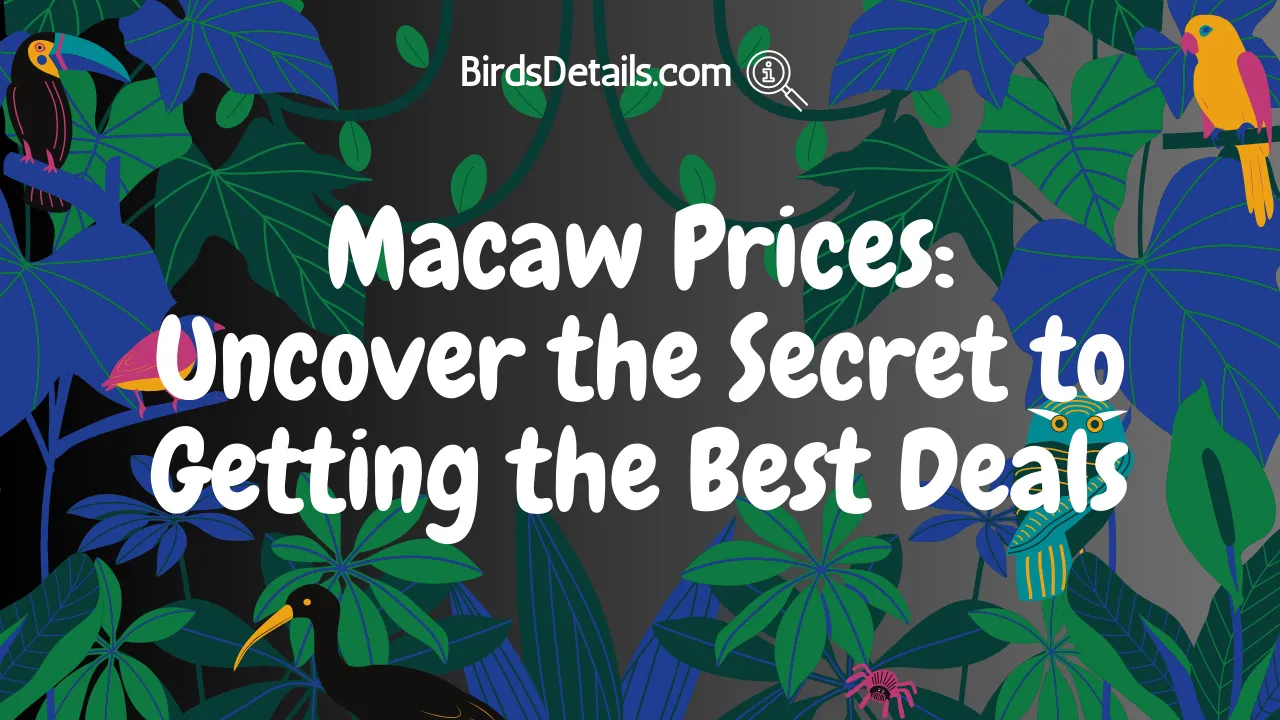Macaw prices vary depending on the species and their age, ranging from $1,000 to $5,000. As highly sought-after exotic birds, macaws are known for their vibrant colors, intelligence, and social nature, making them popular pets.
With their long lifespans and specialized care requirements, potential owners should carefully consider the costs associated with purchasing and maintaining a macaw. Along with the initial purchase price, ongoing expenses such as cage maintenance, quality nutrition, veterinary care, and enrichment activities should be taken into account.
Additionally, potential owners should ensure they have the time, space, and commitment necessary to provide a suitable environment for these majestic birds. Proper research and preparation will ultimately lead to a rewarding macaw ownership experience.
Factors That Influence Macaw Prices
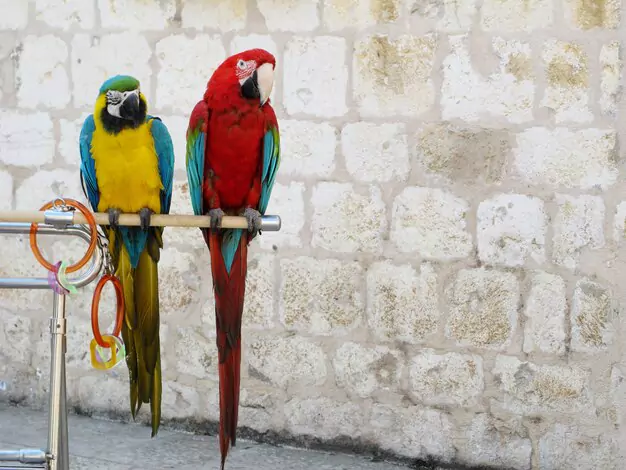
Macaw prices are influenced by various factors, including the breed, age, color, and availability. Supply and demand also play a role in determining the price range for these magnificent birds. Buyers should consider these factors when looking to purchase a macaw.
Breeder reputation and experience:
- Reputable and experienced breeders often charge higher prices for their macaws due to their expertise in breeding and ensuring the health and well-being of the birds.
- They are known for producing high-quality and well-socialized macaws, which can significantly impact the demand and value of the birds.
The rarity of the macaw species:
- The rarity of a particular macaw species can greatly influence its price.
- Macaws that are harder to find or breed tend to be more expensive as they are in higher demand among collectors and enthusiasts.
Age and health condition of the macaw:
- The age of a macaw plays a role in determining its price. Younger macaws are often more expensive due to their longer potential lifespan and the ability to form stronger bonds with their owners.
- The health condition of the macaw also affects its price. Macaws with good health records and regular veterinary check-ups are valued more due to their lower risk of medical issues.
Genetic lineage and potential for breeding:
- The genetic lineage of a macaw can impact its price. Macaws with desirable genetic traits, such as vibrant plumage colors or unique patterns, are highly sought after and can command higher prices.
- Macaws with a proven track record for successful breeding and producing healthy offspring may also be priced higher, as they hold greater potential for contributing to breeding programs and bloodline preservation.
Supply and demand in the market:
- The laws of supply and demand also play a significant role in determining macaw prices.
- If a particular macaw species is in high demand but limited supply, its price is likely to increase. Conversely, if the market is saturated with a specific species, its price may be lower due to higher availability.
Several factors influence macaw prices, including the reputation and experience of the breeder, the rarity of the macaw species, the age and health condition of the bird, the genetic lineage and potential for breeding, as well as the supply and demand in the market.
Considering these factors can help you understand the pricing dynamics when searching for a macaw as a pet or for breeding purposes.
Tips For Finding Affordable Macaw Prices
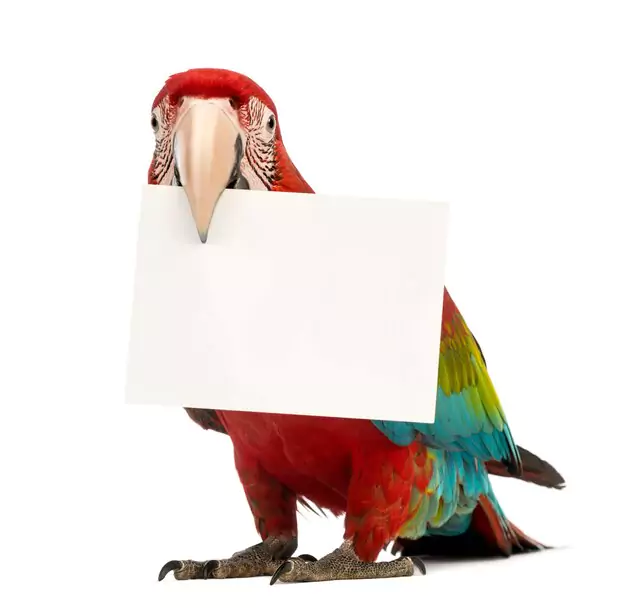
Are you looking for affordable macaw prices? Check out these helpful tips to find the best deals on these beautiful and exotic birds. With careful research and patience, you can find a macaw that won’t break the bank.
If you’re looking to bring home a beautiful macaw without breaking the bank, there are several strategies you can consider. Whether you’re interested in adopting a rescued bird, attending bird shows, or connecting with online communities, these tips will help you find affordable macaw prices.
Keep reading to discover the best ways to add a feathered friend to your family without emptying your wallet.
Explore Local Bird Rescues And Adoption Centers:
- Many birds require forever homes and adoption fees are often more affordable than purchasing from a breeder.
- Rescues and adoption centers provide an opportunity to give a loving home to a macaw in need while saving money.
- Adoption fees often include necessary vaccinations and medical care, helping you avoid extra expenses.
Attend Bird Shows And Expos:
- Bird shows and expos are great places to find a variety of macaw species and interact with knowledgeable breeders and vendors.
- These events often offer discounted prices and specials, allowing you to negotiate a better deal.
- You’ll have the chance to see and compare different macaws in person, helping you find the perfect fit for your family.
Join Online Forums And Communities:
- Online forums and communities dedicated to birds and macaws are full of valuable information and connections.
- Members often share tips on where to find affordable macaws and can recommend reputable sellers.
- Engaging with these communities can lead to insider knowledge about upcoming sales and discounts.
Consider Purchasing From Reputable Breeders:
- Reputable breeders offer healthy macaws with proper documentation and provide ongoing support and guidance.
- While prices may be higher than other options, purchasing from a reputable breeder ensures you’re getting a healthy and well-cared-for bird.
- Seek recommendations from experienced macaw owners to find trustworthy breeders.
Look For Seasonal Sales And Discounts:
- Keep an eye out for seasonal sales and discounts, as breeders and pet stores may offer reduced prices during specific times of the year.
- Research when the best times are for finding macaws at discounted prices, which may be during slower sales periods or holidays.
- Stay updated by following breeders, pet stores, and online sellers on social media to be the first to know about any promotions.
Negotiate The Price And Inquire About Payment Plans:
- Don’t be afraid to negotiate the price when purchasing a macaw, especially if you’re buying directly from a breeder or a private seller.
- Some breeders may offer payment plans, allowing you to pay for your macaw in installments instead of all at once.
- Remember to establish a good rapport with the seller and communicate respectfully throughout the negotiation process.
By applying these tips, you can increase your chances of finding an affordable macaw without compromising on the bird’s well-being. Take your time, do thorough research, and be patient – soon enough, you’ll find the perfect macaw to bring joy and color to your life.
Watching Out For Red Flags In Macaw Pricing
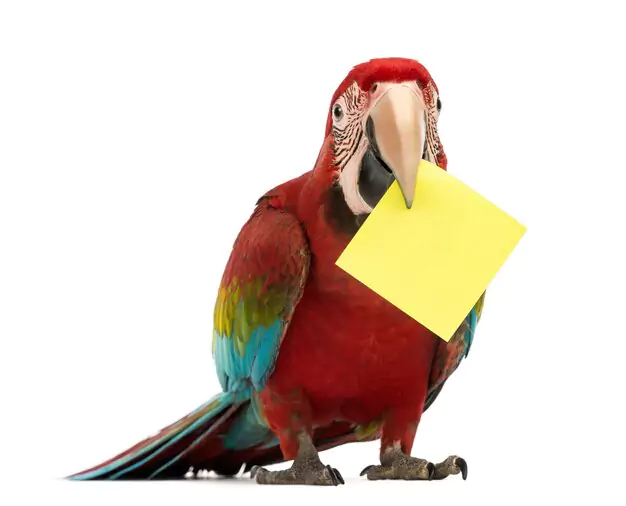
Keep an eye out for warning signs when it comes to macaw prices. Don’t fall into the trap of overpaying; watch for red flags and do thorough research to ensure you’re getting a fair deal.
Buying a macaw can be an exciting experience, but it’s crucial to be cautious when it comes to pricing. Macaws are unique and beautiful birds that require specific care and attention. Unfortunately, not all sellers have the best intentions. In this section, we’ll explore some red flags to watch out for when considering macaw pricing.
Suspiciously Low Prices:
- Extremely low prices in macaws should raise concerns about the bird’s health, breed, or legality.
- Macaws require high-quality care, including a balanced diet, spacious cages, and regular veterinary check-ups. A significantly discounted price may indicate compromises in these areas, potentially compromising the bird’s well-being.
- Bargain prices may also indicate that the macaw is not a purebred or may have been bred unethically.
Lack Of Transparency About The Bird’s Health History:
- A reputable breeder or seller should provide detailed information about the macaw’s health history, including any vaccinations, illnesses, or injuries they may have had.
- Lack of transparency regarding the bird’s health can be a red flag, as it may suggest that the seller is hiding crucial information that could affect your decision.
Unlicensed Or Unregistered Breeders:
- Choose a macaw from a reputable breeder who holds the necessary licenses and registrations.
- Unlicensed or unregistered breeders may not adhere to proper breeding practices or breeding regulations, which can result in macaws with unknown genetic backgrounds or potential health issues.
Unusually High Prices With No Justification:
- While macaws are generally high-priced birds, be cautious of sellers who ask for exorbitant prices without providing any valid justifications.
- Reputable sellers will usually be able to justify the high price of a macaw by providing information about its breeding, lineage, and any special qualities that make it worth the investment.
- Do thorough research and compare prices from different sellers to make an informed decision.
Limited Information About The Bird’s Genetic Lineage:
- It’s essential to know the genetic lineage of a macaw to have an understanding of its potential health and behavior traits.
- If there is limited information available about the bird’s genetic lineage, this could be a red flag indicating that the seller does not prioritize ensuring healthy and genetically diverse macaws.
When it comes to purchasing a macaw, it’s important to remember that quality often comes at a price. Considering the health, genetic background, and reputation of the seller are crucial steps in ensuring you bring home a healthy and well-loved macaw companion.
Avoiding Common Costly Mistakes
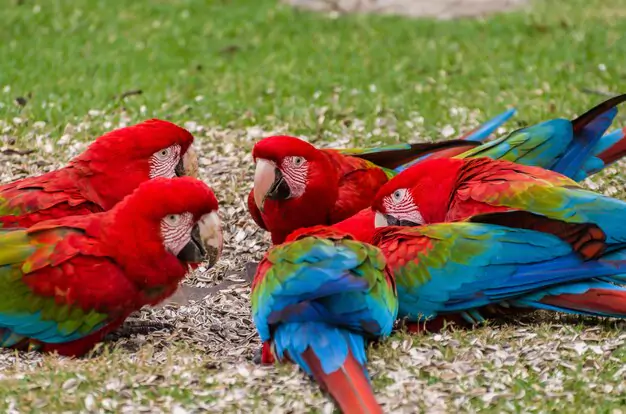
When considering macaw prices, it’s crucial to steer clear of common costly mistakes. By avoiding these errors, you can ensure a smoother and more cost-effective experience in purchasing a macaw.
Buying a macaw can be an exciting decision, but it’s important to avoid common costly mistakes that many potential owners make. By being aware of these pitfalls and taking necessary precautions, you can ensure a smooth and rewarding experience with your new feathered friend.
Buying An Unhealthy Macaw Due To A Low Price
Purchasing a macaw at a low price may seem like a great deal, but it often comes with hidden risks. Here are some reasons why buying an unhealthy macaw based solely on price can lead to costly consequences:
- Lack of proper veterinary care: Cheap macaws may not have received adequate medical attention, resulting in undiagnosed health issues that can become expensive to treat.
- Unreliable breeders: In some cases, low prices may indicate irresponsible breeders who prioritize profits over the well-being of their birds. This can lead to a higher likelihood of genetic or behavioral problems.
- Poor socialization and training: Macaws that are sold at a low price may not have received proper socialization or training, making it more challenging for them to adapt to their new environment and potentially resulting in costly behavioral issues.
Remember, investing in a healthy macaw from a reputable breeder or adopting from a trusted rescue organization may entail a higher initial cost but can save you money in the long run.
Impulse Buying Without Considering Long-Term Costs
Impulse buying can be a tempting trap when it comes to macaws. However, failing to consider the long-term costs of owning a macaw can lead to financial struggles and difficulties down the road. Here are some points to consider:
- Lifespan: Macaws have a long lifespan, often living for several decades. Their care and maintenance costs accumulate over time, ranging from food and housing to regular veterinary check-ups.
- Environmental enrichment: Macaws are highly intelligent and social creatures, requiring mental stimulation and social interaction. Neglecting their need for environmental enrichment can lead to behavioral issues that may require costly solutions.
- Potential emergencies: Unexpected expenses such as veterinary emergencies or unforeseen repairs to their habitat can arise. It’s crucial to have a financial plan in place to address these situations.
Always take the time to evaluate your readiness for the long-term commitment that comes with owning a macaw to avoid any unforeseen financial strain.
Overlooking Ongoing Expenses Like Food And Veterinary Care
While the initial cost of purchasing a macaw is significant, it’s important not to overlook the ongoing expenses that come with their proper care and well-being. Here are some ongoing costs to consider:
- High-quality diet: Macaws have specific dietary requirements, including a diverse range of fresh fruits, vegetables, nuts, and specially formulated pellets. Providing them with a nutritionally balanced diet can be costly, particularly for larger species.
- Regular veterinary care: Macaws need routine check-ups to monitor their health and catch any potential issues early on. These veterinary visits, along with preventive medications and vaccinations, are necessary ongoing expenses.
- Cage and habitat maintenance: Macaws need a spacious and stimulating environment. Regular cage cleaning, replacing toys, and creating a safe space can require ongoing investments.
By considering the ongoing expenses associated with macaw ownership and budgeting accordingly, you can ensure that you provide your feathered companion with the quality care they deserve.
Remember, avoiding common costly mistakes when purchasing a macaw involves being informed, prepared, and financially ready for the responsibilities that come with owning one. Take the time to educate yourself, seek advice from experienced owners, and invest in your macaw’s long-term well-being.
Factors That Affect The Value Of Macaws
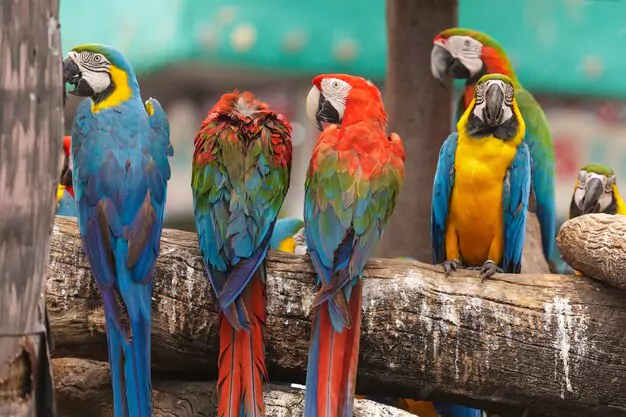
Factors such as breed, age, coloration, and overall health play a significant role in determining the value of macaws. Other factors like availability, demand, and the reputation of the breeder can also influence macaw prices.
Macaws are known for their vibrant colors, intelligent nature, and remarkable speaking abilities. These factors, among others, can greatly influence the value of a macaw. From unique plumage to exceptional training, several key elements contribute to the worth of these magnificent birds.
Color Mutations And Unique Plumage:
- Variety of vibrant colors: Macaws come in a range of stunning hues, from the familiar shades of blue and gold to the vibrant reds and greens of scarlet macaws. The more vibrant and distinct the coloration, the higher the value.
- The rarity of color mutations: Certain macaws have unique color mutations, resulting in one-of-a-kind plumage. These rare variants can significantly increase the value of the bird.
Exceptional Talking And Mimicking Abilities:
- Impressive vocabulary: Macaws are renowned for their ability to mimic human speech and other sounds. Birds with a wide vocabulary and accurate mimicry skills are highly sought after.
- Clear and articulate speech: Macaws that can enunciate words and phrases clearly will command a higher value, as their impressive communication skills are a testament to their intelligence and training.
Trained Behavior And Tricks:
- Impressive tricks: Macaws that have been trained to perform a repertoire of tricks, such as flying through hoops or solving puzzles, are in high demand. The more advanced and entertaining the tricks, the greater the value.
- Well-behaved and sociable: Macaws that exhibit good behavior and are sociable with humans and other animals are considered more valuable. This is because they are easier to handle and interact with, making them desirable pets for enthusiasts and families alike.
Young And Hand-Tamed Macaws:
- Early socialization: Macaws that have been hand-tamed from a young age tend to develop stronger bonds with humans. Their higher value is due to their increased friendliness and adaptability to domestic settings.
- Easier training: Young macaws are more receptive to training, making it easier to teach new behaviors and tricks. Their age and level of tameness contribute to their value.
Special Certifications And Awards:
- Certified lineage: Macaws with documented lineage and certifications from reputable sources have a higher value. These certifications ensure the genetic lineage of the bird and can be obtained through specialized breeders or avian associations.
- Awards and accolades: Macaws that have participated and won awards in bird shows or competitions hold a prestigious status. These accomplishments increase their desirability and value in the market.
Various factors influence the value of macaws. Color mutations and unique plumage, exceptional talking and mimicking abilities, trained behavior and tricks, young and hand-tamed macaws, as well as special certifications and awards, all contribute to the overall worth of these magnificent birds.
Evaluating The Total Cost Of Macaw Ownership
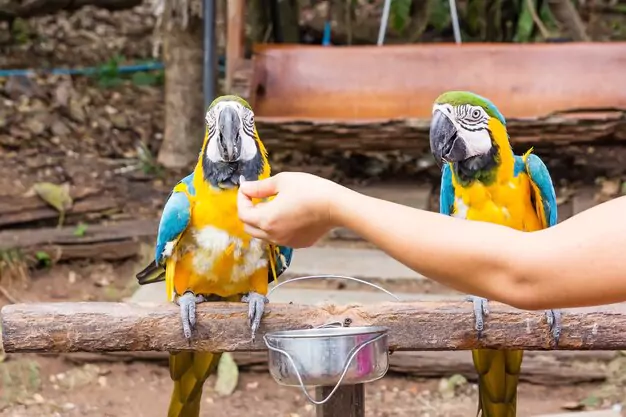
Evaluate the total cost of macaw ownership to make an informed decision. Consider factors such as macaw prices, ongoing care expenses, and potential veterinary costs. Plan to ensure you can provide the necessary financial commitment for these majestic birds.
When considering bringing a macaw into your home, it’s important to assess not only the initial purchase price but also the ongoing costs associated with their care. These vibrant and intelligent birds require proper housing, nutritious food, regular veterinary care, mental stimulation supplies, and potential training or behavioral classes.
Let’s break down the various factors that contribute to the total cost of macaw ownership:
Initial Purchase Price:
- Macaws can range in price from $1,000 to $5,000, depending on factors such as species, age, and breeder reputation.
- A reputable breeder will likely charge a higher price, but they usually offer healthier birds with proper documentation.
Cage Setup And Accessories:
- A spacious cage is essential for a macaw’s well-being. Prices for macaw-sized cages can range from $500 to $2,000.
- Accessories such as perches, toys, and feeding bowls are necessary for their enrichment, costing around $200 to $500.
Food And Dietary Supplements:
- A macaw’s diet should consist of a variety of fruits, vegetables, seeds, and pellets.
- On average, monthly food expenses can range from $50 to $100, depending on the quality of the ingredients.
- Additionally, dietary supplements may be required, which can cost around $20 to $50 per month.
Veterinary Care And Vaccinations:
- Regular veterinary check-ups are crucial for monitoring your macaw’s health. These visits typically cost $100 to $200 per visit.
- Vaccinations and preventive treatments for common avian diseases can add $100 to $200 per year.
Toys And Mental Stimulation Supplies:
- Macaws are intelligent birds that require mental and physical stimulation to prevent boredom and behavioral issues.
- Various toys, puzzles, and enrichment activities should be provided, with costs ranging from $50 to $100 per month.
Potential Training Or Behavioral Classes:
- Macaws can benefit from training and behavioral classes to ensure their well-being and foster a strong bond with their owners.
- The cost of such classes varies depending on the trainer and location, but expect to budget around $100 to $200 per session.
Being an owner of a macaw comes with joy and responsibilities. Taking both the initial purchase price and ongoing costs into account is crucial for ensuring the well-being of your feathery companion. By understanding the financial commitment involved, you can provide your macaw with the care and attention they deserve.
How To Determine If A Macaw Price Is Fair
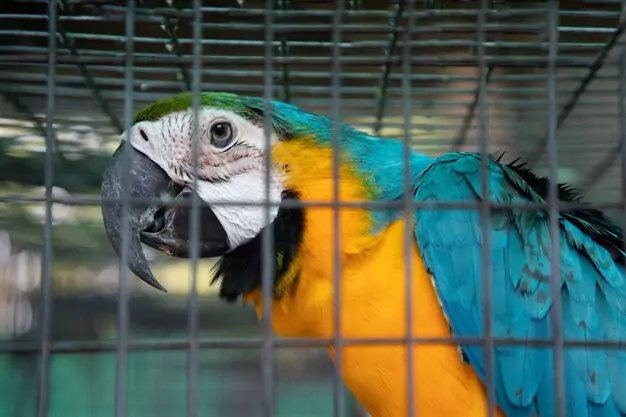
Determining a fair price for a macaw involves considering factors like age, health, and species. Researching average prices in the market and comparing different sellers can help you make an informed decision.
Researching average prices for the specific macaw species:
- Gather information on the typical prices of the specific macaw species you are interested in.
- Look for reputable sources, such as avian forums and marketplaces, to get an idea of the average price range.
- Remember that prices can vary depending on factors such as location and availability.
Comparing prices across different breeders and sellers:
- Take the time to compare prices from various breeders and sellers.
- Look for any significant differences in pricing and consider why they might exist.
- Be cautious of extremely low prices, as they may indicate potential health or quality issues.
Considering the macaw’s age, health, and lineage:
- Keep in mind that factors like the macaw’s age, health condition, and lineage can influence the price.
- Younger macaws may be more expensive due to their potential for longer companionship.
- A macaw with good health and a strong lineage may also command a higher price.
Assessing the breeder’s reputation and experience:
- Research the breeder’s reputation and experience.
- Look for reviews or testimonials from previous customers to get an idea of their credibility.
- A reputable breeder with a solid track record is more likely to offer fair pricing.
Weighing the additional value factors of the macaw:
- Consider any additional value factors that the macaw may possess.
- For example, if the macaw is already trained or comes with a health guarantee, this can increase its overall value.
- Evaluate these factors alongside the price to determine if it is fair and aligns with your expectations.
By following these steps, you can gain a better understanding of whether a macaw price is fair or not. Researching average prices, comparing across different sellers, considering the macaw’s age, health, and lineage, assessing the breeder’s reputation and experience, and weighing the additional value factors are all crucial aspects in making an informed decision.
Remember to take your time, thoroughly evaluate all the factors involved, and always prioritize the well-being of the macaw.
Frequently Asked Questions On Macaw Prices
Why Are Macaws So Expensive?
Macaws are expensive due to their rarity and high demand. The vibrant colors and intelligence make them sought-after pets. The price also reflects the costs of legal importation and breeding licenses. Feeding and caring for macaws is expensive, as they require a specialized diet and spacious housing.
The purchase price covers the efforts of breeders who invest years in breeding and hand-raising the birds. Additionally, macaws have long lifespans, so they provide companionship for many years. The price also includes ongoing veterinary care and support throughout the bird’s life.
As a result, macaw prices are higher compared to other bird species. Remember that owning a macaw requires dedication and commitment, as they are long-lived and social creatures that need proper care and attention.
How Much Does A Macaw Cost In The US?
Macaws can cost between $1,000 and $3,000 in the United States. Prices can vary depending on factors like color variation and age.
How Much Is A Blue And Gold Macaw Worth?
A blue and gold macaw can cost between $1,000 and $2,500, depending on various factors like age, breed, and location. The price can be influenced by the bird’s upbringing, health, and temperament. However, it’s important to note that the cost of owning a macaw extends beyond the initial purchase price.
Macaws require considerable care, including a spacious environment, a diverse diet, regular vet check-ups, and mental stimulation. As such, potential owners should also consider ongoing expenses like food, toys, and potential veterinary costs. Additionally, it is crucial to buy a macaw from a reputable breeder or adoption center to ensure the bird’s well-being and to discourage supporting illegal trade.
What Is The Lowest Price Of Macaw?
Macaws can vary in price, but the lowest price tends to be around $1,500.
Conclusion
After considering all the factors discussed in this blog post, it is evident that macaw prices can vary significantly depending on various factors such as species, age, coloration, and breeder reputation. The blue and gold macaw tend to be the most expensive, while the lesser-known hybrids or rarer species often command higher prices too.
It is crucial to research and choose a reputable breeder who practices ethical and responsible breeding to ensure the well-being of the birds. It is important to note that owning a macaw requires a long-term commitment in terms of time, effort, and finances.
While the initial purchase price may seem significant, it is essential to understand that the cost of maintaining a macaw can be substantial with expenses for housing, food, toys, and veterinary care. By considering all these aspects, potential macaw owners can make informed decisions and ensure a happy, healthy, and fulfilling life for their feathery companions.
FAQs About Macaw Prices
Q1: Why do macaws have such varied prices?
Macaw prices vary due to factors like species rarity, color mutations, breeder reputation, and the bird’s age.
Q2: Are cheaper macaws of lower quality?
Not necessarily. While some cheaper macaws might be healthy and well-cared-for, it’s important to ensure the bird’s welfare and source.
Q3: Can I negotiate the price with a breeder?
Yes, some breeders might be open to negotiation, especially if you’re purchasing multiple birds or during specific times of the year.
Q4: Are adoption fees for rescued macaws more affordable?
Adoption fees for rescued macaws are often more affordable than purchasing from a breeder, and you’re providing a home to a bird in need.
Q5: How do I ensure I’m not paying too much for a macaw?
Research macaw prices from various sources, compare breeders, and understand the average price range for the specific species you’re interested in.
